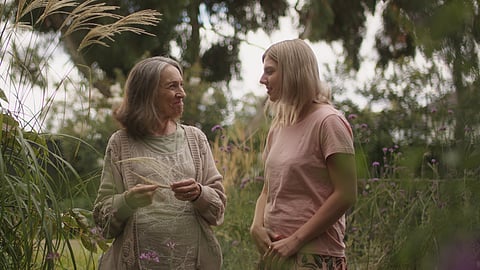Here’s all you need to know about the first Guwahati Asian Film Festival
Guwahati’s first Asian Film Festival – Guwahati Asian Film Festival (GAFF) kicks off today and is slated to take place till February 9 at Jyoti Chitraban, Assam with an interesting line up including films from Uzbekistan, Nepal, Iran, etc along with North-eastern cinematic talents. Prominent actor Sheeba Chadha and Sri Lankan filmmaker Prasanna Vithanage are also expected as guests among others. On this occasion, we speak to Honorary Festival Director, Monita Borgohain, on the necessity of the festival, the line-up, and how it aims to make cinema and the talents behind it go truly borderless.
Excerpts:
How did the thought of organising the first Guwahati Asian Film Festival come to mind?
The idea for the Festival arose from the realisation that the Northeast region lacked a platform to celebrate Asian cinema despite its rich tradition of independent filmmaking. The region’s cultural vibrancy, geographical positioning as a gateway to Asia, and limited access to major film festivals across India inspired the establishment of GAFF as a celebration of both local and Asian cinematic excellence.
Why do you think that this is the right time for the inception of this Festival?
With global recognition of Asian cinema on the rise and a growing need for decentralization in the arts sector, this is the perfect moment. The festival aligns with the increasing demand for platforms that represent diverse voices and offers Northeast India a chance to showcase its cultural and cinematic richness on a global stage. The timing also reflects a shift toward making festivals more inclusive and accessible to underrepresented regions.
What would you say makes GAFF stand out?
It’s the first Asian film festival in the Northeast, that uniquely positions Guwahati as a cultural hub and celebrates borderless storytelling. Its emphasis is on accessibility, diversity, and fostering cross-cultural exchange.
What does the line-up look like?
It includes thought-provoking Asian films, Indian cinema, and a competitive section dedicated to North-east Indian filmmakers. Audiences can expect a mix of visually striking, culturally rich, and emotionally resonant films that challenge stereotypes and celebrate humanity.
What led you to choose In The Arms of the Tree and My Melbourne as the opening and closing films of the festival respectively?
Iranian cinema is globally acclaimed for its unique storytelling. While culturally distinct, its films often explore humanitarian themes that deeply resonate with Indian audiences. This was our primary belief in curating the selection. Additionally, In The Arms of the Tree, is Iran’s official entry to the Oscars, which further elevated its significance.
On the other hand, My Melbourne brings together four captivating narratives by four acclaimed Indian filmmakers. Among them is Assam’s own Rima Das, marking her debut in an international collaborative production, along with Imtiaz Ali, Kabir Khan, and Onir. It has generated significant anticipation among local audiences. Its compelling storytelling made it the perfect choice as the festival's closing feature.
How does the festival provide a platform and encouragement to the emerging filmmakers of the Northeast?
It includes a competitive section specifically for Northeastern filmmakers and by hosting the festival in Guwahati, local talent is given a global platform to showcase their stories, network with filmmakers, and explore collaboration opportunities. The festival also inspires the local film community to create works that resonate beyond regional boundaries.
Do you believe that access is a major challenge in the region when it comes to taking films to the right audience?
Yes, access remains a significant challenge in the Northeast due to limited infrastructure and the region’s perceived remoteness. Many in the region face barriers to attending major film festivals in other parts of India due to travel and financial constraints. We address this by bringing a world-class cinematic experience directly to Guwahati.
How can Northeastern talents be made more accessible on a global platform?
Through curated film festivals, collaborations with international filmmakers, and online streaming platforms. Encouraging participation in global film markets and festivals while emphasising the region’s unique narratives can further amplify its presence. Educational programs and workshops can also equip filmmakers to create works with universal appeal.
How can the Festival promote tourism in Guwahati?
It attracts visitors, including filmmakers, critics, and cinephiles, from across the globe. The festival provides an opportunity to showcase the region’s cultural heritage, cuisine, and natural beauty. Promotional efforts highlighting local attractions during the event can further boost tourism and position Guwahati as a vibrant cultural destination.
What is your vision with the Festival?
To create a globally recognised platform that celebrates Asian and Northeastern cinema, fostering cultural exchange and inspiring filmmakers to share their stories with the world. The festival aims to bridge gaps between local and international audiences, promote inclusivity, and position Northeast India as a hub of creativity and cinematic excellence. Through this, GAFF seeks to leave a lasting impact on both the local and global film communities.

